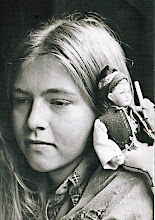The message from Minnie to Seargeant Richard Davis, a patient at the U.S. Army Base Hospital #1 reads:
9-30-18
This arch is but 2 blocks from our hotel I do hope you will get to see Paris for it is a most beautiful city. Although I hate to admit it, I do think it is much prettier than New York. Hope you are still with us so I may see you again.
Sincerely Minnie
I'm afraid I don't know if Minnie was able to see him again or not.





















































